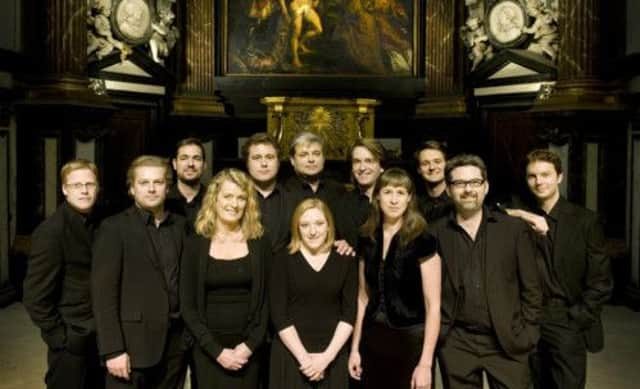Classical review: Jonathan Mills finale


Takács Quartet / Czech Philharmonic Orchestra / Anne Sofie von Otter / William Tell
Jonathan Mills, the composer and outgoing Festival director (off to write his third opera), had saved some of the great European orchestras for last, from the Czech Philharmonic to the Royal Concertgebouw, but there was opera, too, and a Queen’s Hall programme peppered with treats, not least in a concert from the redoubtable Takács Quartet.
Advertisement
Hide AdFounded in 1975 at the Music Academy in Budapest and still fielding two of its original members, the Takács Quartet are hard to beat in their element, long on intelligence and refinement, the sound warm, sensitive and full of insight. In Janácek’s String Quartet No 1 “The Kreutzer Sonata”, the Takács found treasure in the dark doings of a work based on Tolstoy’s short story about a husband’s murderous jealousy of his wife and a visiting violin virtuoso. Violinist Edward Dusinberre’s “discovering music” style introduction was a little overdone – although he’s an entertaining speaker – but in the end, the superbly characterised music spoke for itself.
Afterwards there was a whisper-light performance of the Adagio from Barber’s String Quartet – a counter to all those overly intense playings this piece seems to attract. An echo too, of the Adagio in superbly judged Beethoven String Quartet in A Minor (Op 132) to come. Rapturous, warm, dizzily engaging, this was the Takacs at their fabulous best.
That evening, the second of the Czech Philharmonic Orchestra’s two-concert residency proved less stimulating than the first. There was something wan in the orchestra’s playing of their own Czech repertoire, from George Szell’s sizzling orchestration of Smetana’s First String Quartet to Dvorak’s austere Biblical Songs, ardently sung by Bernarda Fink. Janácek’s thrilling Sinfonietta was all fireworks in the brass, as it should be, although even the usually superbly articulated strings seemed to tire.
Back at the Queen’s Hall, mezzo-soprano Anne Sofie von Otter, violinist Daniel Hope, pianist Bengt Forsberg and multi-instrumentalist Bebe Risenfors put on thought-provoking performance of work written by composers and poets in the Nazi prison camp at Terezin in what is now the Czech Republic. It was poignant to think that the Czech Philharmonic itself had its most garlanded period in the 1950s and 1960s under the great conductor and Holocaust survivor Karel Ancerl, who was himself interned in Theresienstadt, as the Nazis called it, and led the camp orchestra.
I found the poet Ilse Weber’s work, often written to or about her children, immensely moving, and cannot have been the only person reduced to tears as von Otter sung Weber’s lullaby, written before she voluntarily joined her family on the transport to Auschwitz, where she and her youngest son were murdered in the gas chambers.
Here, too, was the Suite for Piano (Op 13) of the brilliant Pavel Haas, the piano Reminiscences of Karel Berman, and cabaret songs written to keep spirits up. All the works, bar those of Erwin Schulhoff, who was killed in Wulzburg concentration camp, were written in Theresienstadt, either secretly or during the later Nazi propaganda drive to prove to the world that all the Jews – emaciated, sick, starved – in their camps lived “lives as wonderful as these.” All the composers, except for Berman, ended up in the gas chambers of Auschwitz, but, as von Otter pointed out, their music – the thing which many lived for – survived the Nazi’s attempt to exterminate the people and their culture.
Advertisement
Hide AdOn Wednesday night, the second of the three operas on the International Festival programme, although sadly only two of them were staged. Rossini’s Guglielmo Tell (William Tell), here sung in Italian translation rather than the original French, drew the short straw and was given a concert performance in the Usher Hall. No need, in the event, to lament the lack of staging however, as this concert performance transcended its undramatic confines in a production that sparkled and thrilled.
The reason for it all, effectively, was the music director of the Teatro Regio Torino, Gianandrea Noseda, a bouncy Italian who knows how to polish off a nice bit of Rossini, eliciting superb performances from the chorus and orchestra of the Turin opera house.
Advertisement
Hide AdRossini’s William Tell is grand opera in all senses of the word, from the epic theme of Swiss rebels (led by Tell, the rebel archer who successfully shoots an apple off his son’s head to win their short-lived freedom) overcoming the tyranny of their evil Austrian overlord, to the four-hour length.
Among the excellent soloists, the sublime duo of tenor John Osborn and soprano Angela Meade took most of the plaudits, although Luca Tittoto’s half-mad tyrant Gessler gave them a run for their money. The only weak link was Dalibor Jenis’ soft-voiced Guglielmo, who couldn’t be heard above the orchestra for much of the first act. But no matter when the music, both scored and performed, was as thrilling as this.